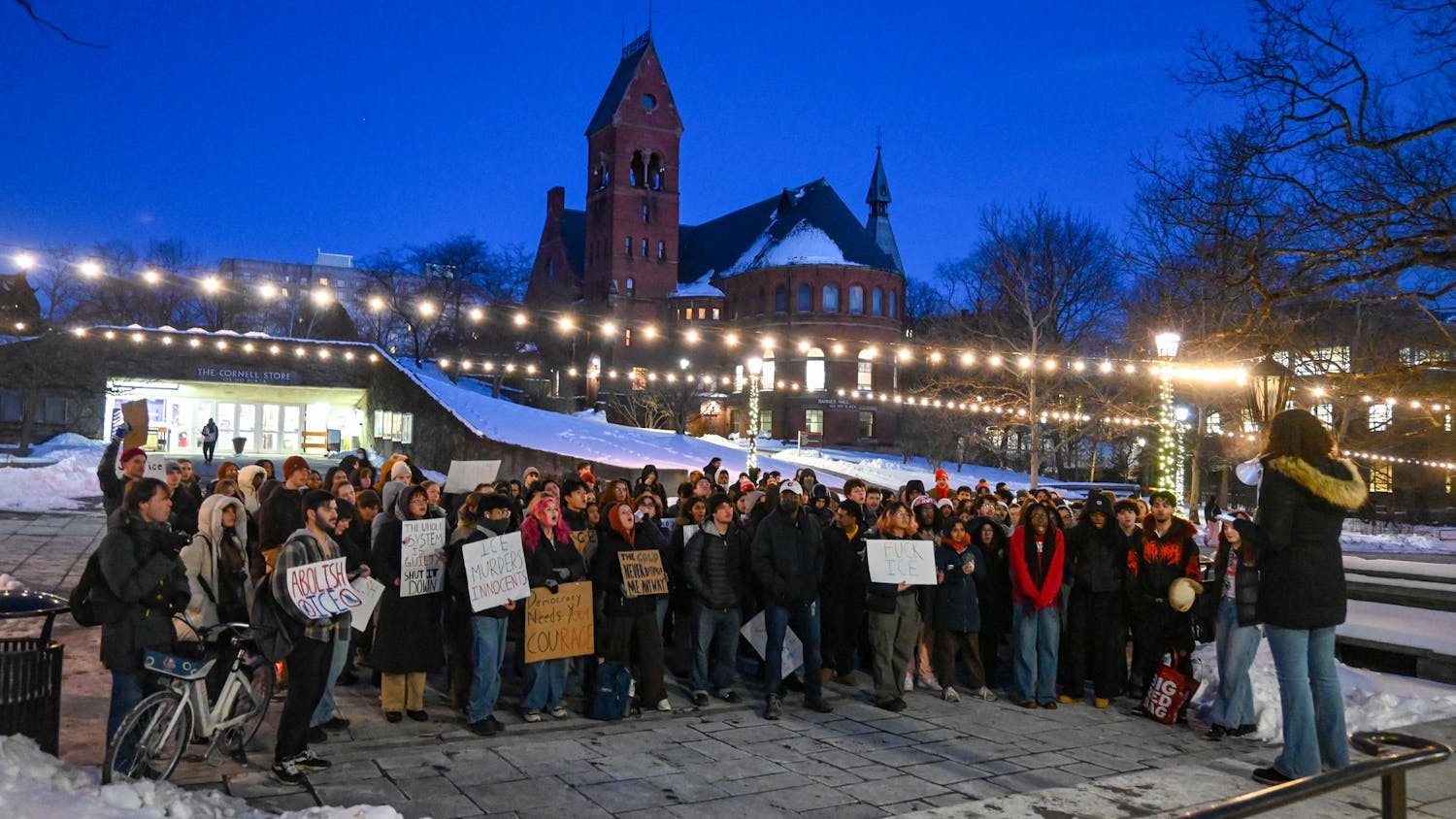Two graduate students at Cornell University filed four federal charges of discrimination on June 18 against the Cornell Graduate Student Union and its affiliated labor union, the United Electrical, Radio and Machine Workers of America, alleging violations of Title VII of the Civil Rights Act of 1964.
CGSU is a student union that represents Cornell’s graduate student workers. Cornell and CGSU agreed to a modified agency shop in its now ratified contract on March 19.
According to the National Right to Work Legal Defense Foundation, which represents Cornell Ph.D. students and plaintiffs David Rubinstein and Louie Gold, employees who oppose union affiliation on the basis of sincerely held religious beliefs are entitled to an accommodation under Title VII. The foundation asserts that this typically allows for redirection of dues to a mutually agreeable 501(c)(3) nonprofit, rather than to the union.
In agency shops — where union membership isn’t mandatory, but employees are still required to pay union fees — all workers must contribute an agency fee to the union, regardless of membership. Currently, Cornell’s modified agency shop is tailored so that students who do not wish to join the union or pay its fees based on “moral or ethical grounds” can instead donate the equivalent amount to one or more predesignated charities: the American Heart Association, American Cancer Society, or United Way.
In their filings with the Equal Employment Opportunity Commission, Rubinstein and Gold argued that union officials subjected them to unlawful discrimination for refusing to financially support the unions due to their Jewish faith.
They attested that the 2025 collective bargaining agreement, which included the modified agency shop, mandated them to pay union service fees as a condition of employment. The students furthered that when they expressed their religion-based objections for doing so, they faced discrimination through “dilatory” and unnecessary questionnaires “meant to avoid the unions’ affirmative duty to accommodate [them].”
The union’s response — which included questions concerning how long the student has had their religious beliefs and requests for the name and religious service address of the student’s faith leader — violated Title VII protections against religious discrimination, the plaintiffs said.
“The unions had no objective or bona-fide reasons to doubt the basis for my accommodation request or to question [our] sincerely held religious beliefs, observances, and practices,” Rubinstein and Gold wrote in their legal filings.
Their claims further cite ideological concerns, pointing to CGSU’s and UE’s history of activism regarding the Israel-Palestine conflict.
Their charges of discrimination characterized the unions’ political positions as supportive of Hamas and Israel’s destruction.
They submitted that their religious faith does not allow them to fund organizations, including the CGSU-UE, that “have opposed the existence of Israel as a Jewish nation.” The students alleged that the CGSU-UE has “been at the forefront of demonizing Israel, seeking its destruction, and supporting Hamas’ violent and barbaric terrorism against Israel.”
Initially, Cornell and CGSU were at odds on whether all employees should be mandated to join the CGSU-UE through a union shop. However, Cornell and the union agreed to the now collective bargaining agreement that includes a mandatory dues clause for graduate workers, except for those granted exemptions. New York is not a Right to Work state, meaning that union dues or equivalent agency fees can be required as a condition of employment, although Title VII protects religious objections under federal law.
The controversy also comes amid growing tensions across U.S. campuses concerning the boundaries of union activity and religious accommodation.
For example, the Foundation represented a Massachusetts Institute of Technology graduate student alleging similar religious objections, resulting in a 2024 settlement that required UE officials to notify the graduate student body of their legal right to opt out of dues for political or ideological activities under Communications Workers of America v. Beck.
“Union bosses may not like it, but federal law is clear,” commented Foundation President Mark Mix in a public statement with the Foundation. “They must comply with valid requests for religious accommodation … and cannot interrogate or harass those who object to the union’s activities on religious grounds.”
The University sent an email to CGSU and UE on June 2, expressing concern about religious accommodations regarding dues. The email read that CGSU and UE have “not taken the steps required to provide Graduate Student Workers with the ability to exercise their right to elect the charitable contribution option.”
It also indicated that the University had similarly expressed concern regarding the unions’ allowance of charitable deductions instead of dues since at least April 28.
Both students alleged in their filings that on June 2, they sent “a detailed letter” to UE and Cornell stating their religious objections to paying the dues.
Neither CGSU nor UE officials replied to requests for comment.











